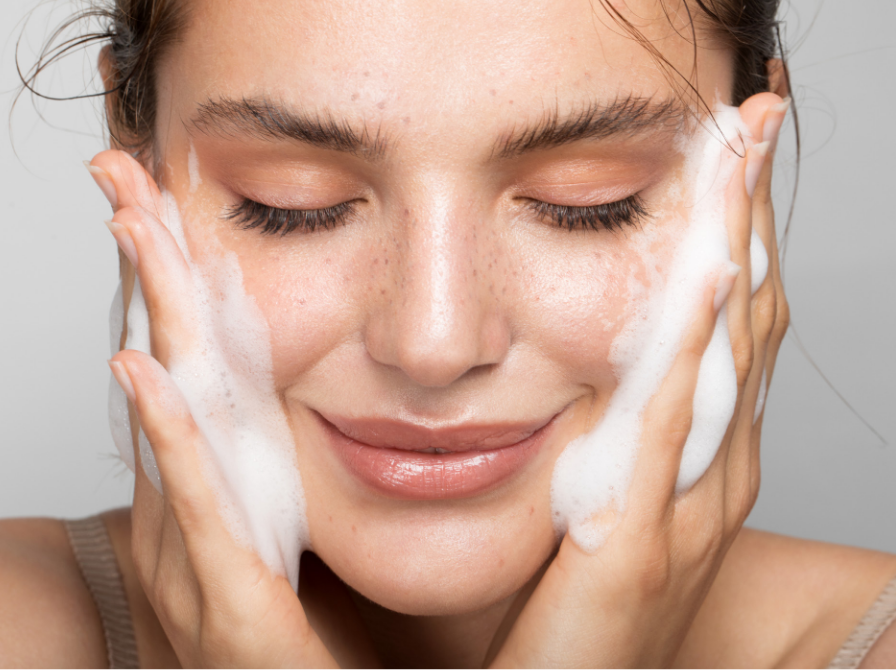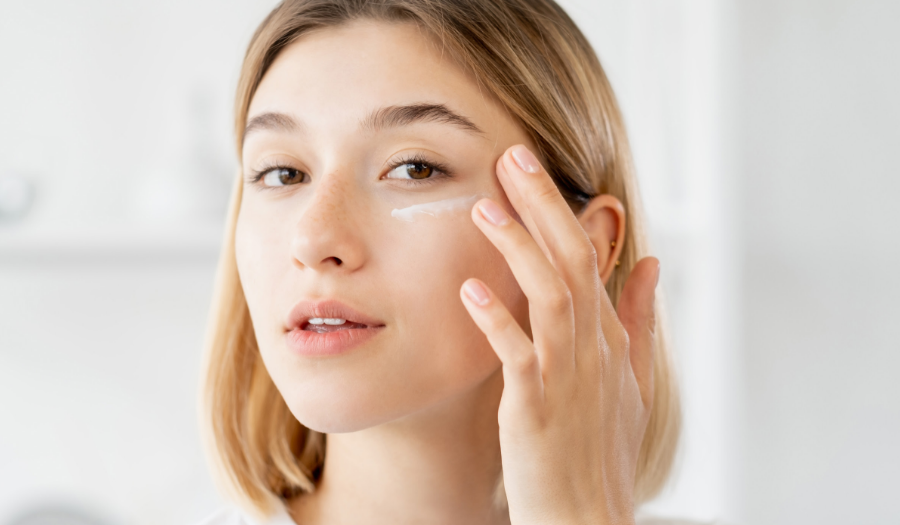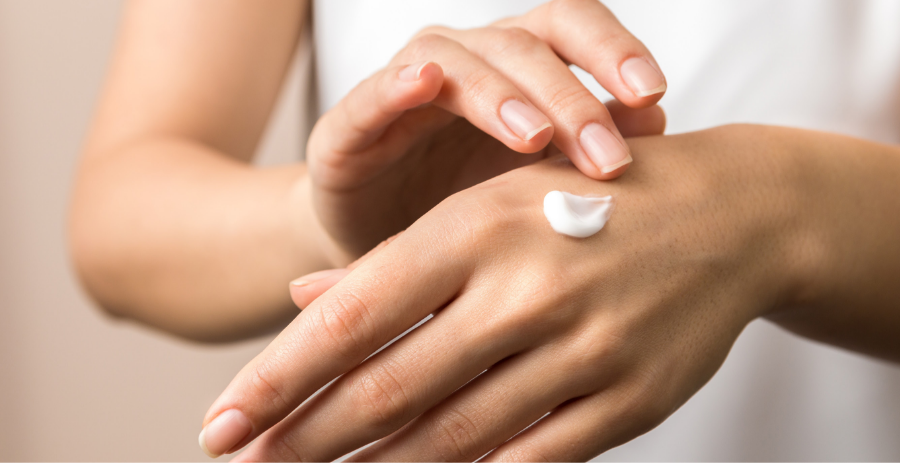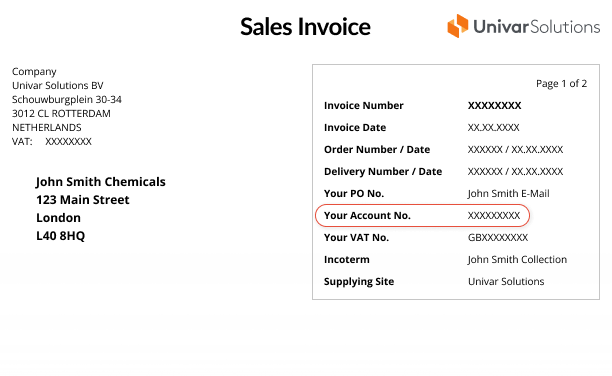We’re here to provide you with more information or help answer any questions you might have. Send us a note and we’ll get back to you as soon as possible.


Itching, dry patches, and red blotches–oh my! Sensitive skin can (seemingly) strike at any time. Recent studies have shown that up to 50 percent of the population say they have sensitive skin—with more women being troubled by sensitive skin compared to men. Further, those with inflammatory skin conditions such as eczema, acne, or rosacea are even more prone to the throes of sensitive skin.
Luckily, there are skincare regimens tailored specifically for people suffering from this–whether it be momentary (like a sunburn or contact dermatitis) or long-term. In this article, we’ll discuss the best ingredients for sensitive skin when formulating your own products or searching for a holy grail regimen. Plus, we’ll serve up ingredients that can trigger a bad reaction so you can steer clear of them.
8 Natural Ingredients for Sensitive Skin
When you have sensitive skin, it could be because of underlying skin carrier dysfunction and inflammation. That’s why a good strategy is to use a regimen based on protecting or healing the skin barrier as well as calming and hydrating the skin. Natural ingredients–ones your skin knows and loves–are always a safe bet for calm, soothed skin. Here are our eight favorite natural ingredients for sensitive skin.


1. Aloe Vera
Many people turn to aloe vera as a timeless solution for sunburns, cuts, and scrapes. Just a dab can help calm inflammation, and its antimicrobial properties help speed up the healing process. In skincare, it works much in the same way. Aloe vera is a natural ingredient that can hydrate and soothe the skin. It can come in a liquid or gel form, perfect for moisturizers, creams, gels, and masks
3. Centella Asiatica
Centella asiatica (also known as Gotu kola or Tiger Grass) is a perennial herb grown in Asia that contains active compounds that serve as antioxidants. In addition, it has a rich source of amino acids. It’s both hydrating and quite effective at calming the skin during flare-ups, such as after a chemical peel, IPL treatment, or between retinol applications.
5. Edelweiss Extract
Edelweiss extract comes from a flower that grows in the Swiss Alps. It has
antibacterial, anti-blemish, anti-inflammatory, and antioxidant properties. It also contains lignans, a type of compound that has a natural skin-calming benefit, as well as leontopodic acid, which strengthens the skin’s barrier–making it more resilient against environmental stressors.
7. Seaweed
Seaweed isn’t just the perfect blanket for sushi. It’s also a great ingredient for skincare. Seaweed is a powerful concentration of seawater that holds minerals, vitamins, amino acids, lipids, and proteins inside. This can help soothe inflammatory skin conditions such as rosacea and acne. The magnesium and zinc in it can also help reduce redness. When formulating skincare products, it’s important to note that there are actually quite a few different types of seaweed you can use to target specific skin issues.
For example, here are some other types we recommend:
-
Brown seaweed (algin) is listed as alginic acid on skincare labels. It’s great for lotions, moisturizers, and creams since it also helps replenish moisture in the skin. It’s also a thickening agent that helps create a rich, creamy texture.
-
Red seaweed (Chondrus crispus) is also referred to as carrageenan. This extract is great for anti-aging skincare since it’s filled with antioxidants, peptides, and polysaccharides. It is also useful in formulations to thicken products and as an emulsifier.
-
Spirulina is a dark green powder many consumers have experienced in a supplement or a smoothie. However, it’s a great skincare ingredient for sensitive skin since it's rich in fatty acids, antioxidants, vitamins, and nutrients. It has antimicrobial properties and can reduce the appearance of dark spots and dark circles under the eyes
2. Shea Butter
For those who find their skin getting irritated from fancy lotions and creams, they may benefit from taking things back to the basics. Shea butter is a natural ingredient that works like an emollient to soften and hydrate the skin. It is especially effective at treating eczema, rosacea, and psoriasis, as well as minimizing scars and stretch marks.
4. Green Tea
Green tea has long been used for medicinal purposes. In recent years, green tea extract has become a popular ingredient for skincare due to the polyphenols that act as an antioxidant to help heal sun-damaged skin and prevent further damage.
6. Oatmeal
Oat extract and oat oil have long been used to treat minor skin conditions and balance the skin’s microbiome—that is, the millions of bacteria, fungi, and viruses that live on your skin and serve as a physical barrier to protect the skin and keep irritants out. Taking an oatmeal bath was a celebrated solution to dry, itchy skin for centuries (and is still recommended to this day). Today, it’s used in a number of skincare items, from body wash to face creams.
8. Witch Hazel
Witch hazel (hamamelis virginiana) is also a natural ingredient, although many people may overlook it since it resembles rubbing alcohol in the drugstore. Originating from a shrub that’s indigenous to the United States, it’s been used for centuries as a remedy for skin ailments related to irritation and inflammation.
For those with sensitive skin and acne or clogged pores, witch hazel is a holy grail. That’s because many products that target acne (such as those with salicylic acid) can be too irritating for sensitive skin. Witch hazel, however, is a naturally effective herbal extract that can unclog pores by removing excess oil. It’s commonly used in toners or in a spray bottle.


1. Fragrance
Fragrances aren’t always a bad thing. They certainly help bring a new experience to skincare and help mask those not-go-great smelling ingredients! But as it turns out, many people have negative reactions to fragrance, even if they don’t typically experience sensitive skin on a day-to-day basis. Fragrances can be natural (such as botanical extracts, essential oil extracts, or resin), or they can be chemical (such as parfum).
For sensitive skin, it’s best to create or look for “unscented” products. This term means the product is free of scents and will contain no smell. On the other hand, “fragrance-free” means there are no added ingredients to change the smell of the product, but it can have ingredients that have a scent (and therefore may irritate the skin).
3. Sulfates
Sulfates are the ingredients that create lather in everything from face wash to shampoo and are commonly listed as ammonium lauryl sulfate and sodium lauryl sulfate. Many traditional formulas use sulfates to effectively remove dirt and excess sebum, but they’ve been known to strip the skin of moisture and cause irritation. If you are formulating for sensitive skin, steer clear of foaming formulas and instead opt for oil or cream cleansers, which are made with milder eco surfactants that don’t strip the skin of its natural oils.
5. Retinol
Although retinol is a holy grail ingredient for anti-aging routines, it’s notoriously harsh on the skin. If you are working with sensitive skin, you’ll want to swap it out for bakuchiol. Bakuchiol is a natural alternative for retinol.
2. Harsh Exfoliants
Much like sunscreens, there are two types of exfoliants: physical (such as micro-beads and scrubs) and chemical (like AHAs). Because sensitive skin generally has a weakened skin barrier, any type of exfoliator can often be too harsh for the skin, leaving it raw and dry. Those with sensitive skin should opt for a chemical exfoliant that is generally less abrasive. Ideally, exfoliates for sensitive skin should be made with gentler ingredients with exfoliating properties such as lactic acid (an AHA that is known to be more sensitive than other acids).
4. Chemical Sunscreens
There are two main types of sunscreen: chemical and mineral (also known as physical). Chemical sunscreens use ingredients like avobenzone, octinoxate, and oxybenzone to reflect UV rays off of the skin. They’re effective at getting the job done but are known irritants to those with sensitive skin. Mineral sunscreens on the other hand use ingredients like zinc oxide and titanium dioxide which sit on the skin’s surface and physically prevent UV rays from penetrating the skin. They are much gentler on the skin and are generally recommended for use on sensitive skin and children’s skin.




Tips for Formulating Sensitive Skincare Products
When formulating skincare for sensitive skin, the best thing to do is keep it simple. It’s important to keep the skin balanced and healthy and not overwhelm it with too many ingredients at once. Let’s recap some of the key ways to create an effective, consumer-friendly regimen:
-
Use non-foaming agents or opt for gel-based cleansers
-
Use natural ingredients and only add necessary ingredients
-
Keep the regimen simple, focusing on hydration and maintaining the skin
barrier
-
Use caution when working with known irritants such as fragrance, retinol, and
AHAs
Formulate Sensitive Skincare Products With Us
Ready to create your own skincare line? Whether you want to formulate with ingredients that hydrate and repair the skin barrier, so flare-ups are a thing of the past, or if you want fast-acting creams and serums that work to reduce redness, we can help. No other distributor can match our breadth and depth of knowledge of beauty and personal care ingredients and technologies.
Shop Ingredients for Sensitive Skincare Products
Our ingredients deliver an array of textures, aesthetics, and formulation possibilities so you can create the perfect sensitive skin regimen from scratch. Shop our selection of skincare ingredients to elevate your current range or jump-start a new idea.




Contact Us for Formulation Support
We’re here to connect you with world-class ingredients through our beauty lens. So if you are an indie or small cosmetic or skincare brand, formulator, or chemist looking for information about the latest cosmetic trends, get in touch to find out how we can cater to your needs when formulating.
Resources
References:
Aquabio, Car Wash History: From Simple Beginnings to Modern Day Features: https://aquabio.co/uncategorized/blog/car-wash-history-from-simple-beginnings-to-modern-day-features/
Automatic Vehicle Wash, Tunnel Systems: https://avwequipment.com/equipment-category/tunnel-systems/
Carwash.com, 5 long-lasting benefits of carwashing: https://www.carwash.com/5-long-lasting-benefits-carwashing/
Carwash.com, Going green: Save electricity, water and money: https://www.carwash.com/going-green-save-electricity-water-and-money/
Carwash.com, Lessons in carwash tunnel layout: https://www.carwash.com/lessons-carwash-tunnel-layout/
Detail Pro POS, 20 Car Wash Statistics in 2021 That Will Surprise You: https://www.detailpropos.com/blog/car-wash-statistics/
Focusedcarwash.com, Car Wash Industry Statistics: https://focusedcarwash.com/wp-content/uploads/2017/09/industry-statistics.pdf
How It Works, How does a car wash work?: https://www.howitworksdaily.com/how-does-a-car-wash-work/
JBS Industries, 10 Trends You Should Know About the Car Wash Industry: https://www.jbsindustries.com/blog/10-trends-you-should-know-about-in-the-car-wash-industry/
JBS Industries, Best Car Wash Add-Ons: https://www.jbsindustries.com/blog/car-wash-add-ons/
PSD Codax, Tunnel Car Wash Systems - A Beginner's Guide to Tunnel Car Wash Systems: https://www.psdcodax.com/tunnel-car-wash-systems-a-beginners-guide-to-tunnel-car-wash-systems/
Sunset North Car Wash, Here's What (Tunnel) Car Washes Are Really Doing to Your Car: https://sunsetnorthcarwash.com/2022/11/28/heres-what-tunnel-car-washes-are-really-doing-to-your-car/
Synchrony, 5 Reasons to Visit the Car Wash - and What to Watch Out For: https://www.mysynchrony.com/blog/automotive/5-reasons-to-visit-the-car-washand-what-to-watch-out-for.html
Thompson Sales Company, Wash Your Car Yourself or Take It Somewhere: https://www.thompsonsales.com/wash-your-car-yourself-or-take-it-somewhere/
Tommy's Express, Do clean cars improve gas mileage?: https://tommys-express.com/blog/do-clean-cars-improve-gas-mileage/
Way.com, Tunnel Car Wash - All you need to know: https://www.way.com/blog/tunnel-car-wash-all-you-need-to-know/
Way.com, All you need to know about clean cars and fuel efficiency: https://www.way.com/blog/clean-car-and-fuel-efficiency/
Western Carwash Association, Water Conservation: https://www.wcwa.org/page/WaterConservation




